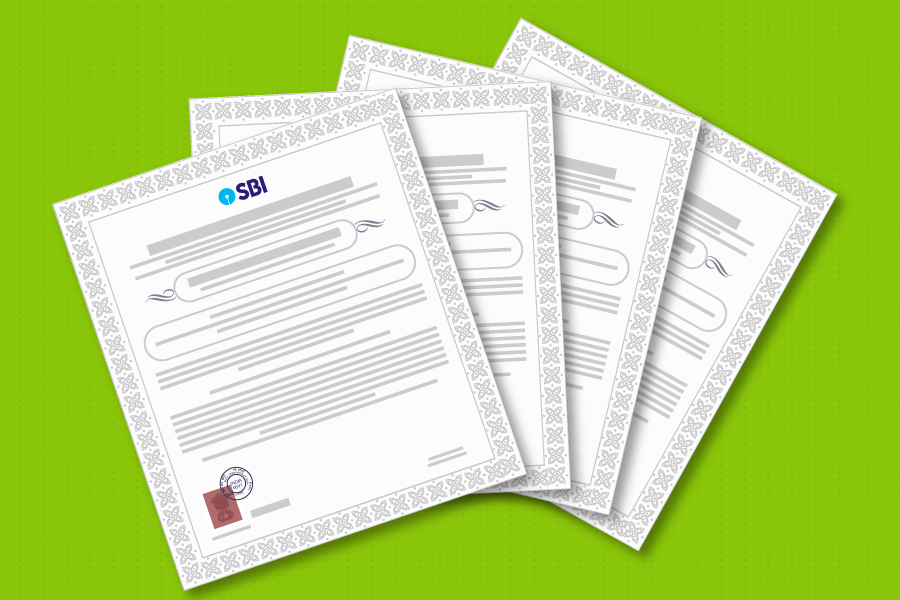
Electoral Bonds Scheme amended; 15 more days of sale in assembly poll years
Soon after issuing the amendment notification, the Centre rolled out the 23rd tranche of electoral bonds, which will be sold from 29 authorised SBI branches from November 9 to November 15

The Union government has drawn criticism for amending the Electoral Bond Scheme, 2018, to provide for an additional 15 days of sale in the years when Assembly elections are held. As is, the scheme is controversial, and the Supreme Court is scheduled to hear pleas challenging its allowance of anonymous political donations on December 6.
On Monday (November 7), the Union Finance Ministry issued a notification for amending the scheme to facilitate sales for “an additional period of 15 days” “in the year of general elections to the Legislative Assembly of States and Union Territories with Legislature”.
The approval came just ahead of the Assembly elections in Gujarat (December 1 and 5) and Himachal Pradesh (November 12). The Opposition has sharply criticised the amendment being carried right before the key elections, citing violation of Model Code of Conduct (MCC).
Fresh tranche from Nov 9-15
Soon after issuing the amendment notification, the Union government rolled out the 23rd tranche of electoral bonds, which will be sold from 29 authorised branches of the State Bank of India, from November 9 to November 15.
Typically, electoral bonds are made available for purchase on the first 10 days of January, April, July and October. The original scheme had facilitated an additional 30 days of sale, as specified by the government, during Lok Sabha election years. The amendment adds another 15 days to the mix during every year that Assembly elections are held. The apparent lack of transparency in the process is strongly criticised.
Also read: 95% donations through electoral bonds going to BJP as donors scared of funding other parties: Gehlot
Trinamool Congress (TMC) MP Mahua Moitra called it clear violation of the MCC and asked the Election Commission (EC) to “wake up”. “Centre yesterday notified electoral bond sale for extra days Nov 9-15 allowing more anonymous BJP donations for Guj & HP campaigns! Previously sale allowed only on 10 specified dates in Jan, April, July & Oct except in LS poll years. Clear MCC violation – wake up ECI!” Moitra tweeted.
Also read: Electoral bonds an absolutely transparent funding mode: Centre to SC
Replying to her tweet, senior Congress leader and MP, Jairam Ramesh wrote, “No surprise here though.”
No surprise here though https://t.co/TNUA4NKRO4
— Jairam Ramesh (@Jairam_Ramesh) November 9, 2022
CPI(M) general secretary Sitaram Yechury said electoral bonds should be scrapped and added that “legalising political corruption must end”.
“Yet another tranche of Electoral Bonds on eve of Gujarat polls. 2018 legislation had notified 4 tranches annually. Now for every assembly poll even as SC is to hear challenges to its Constitutional validity on Dec 6. Legalising political corruption must end. Scrap Electoral Bonds,” he tweeted.
Yet another tranche of Electoral Bonds on eve of Gujarat polls. 2018 legislation had notified 4 tranches annually. Now for every assembly poll even as SC is to hear challenges to its Constitutional validity on Dec 6.
Legalising political corruption must end. Scrap Electoral Bonds pic.twitter.com/sR6xfIAOE4— Sitaram Yechury (@SitaramYechury) November 8, 2022
Electoral bonds have been pitched as an alternative to cash donations made to political parties as part of efforts to bring transparency in political funding.
Also read: 5 regional parties declared donations of ₹250 cr through electoral bonds in 2020-21: ADR
Sale via SBI branches
Usually, electoral bond tranches are open for sale between 1-10 of a designated month. For instance, the 22nd tranche of bond sales took place from October 1-10, 2022 while 21st tranche was from July 1-10, 2022. Sale of the first batch of electoral bonds happened from March 1-10, 2018.
The authorised SBI branches include those in Lucknow, Shimla, Dehradun, Kolkata, Guwahati, Chennai, Patna, New Delhi, Chandigarh, Srinagar, Gandhinagar, Bhopal, Raipur, and Mumbai. SBI is the only authorised bank to issue electoral bonds.
An electoral bond will be valid for 15 days from the date of issuance. No payment would be made to any political party if the bond is deposited after expiry of the validity period, the statement said. The bonds can be purchased by Indian citizens or entities incorporated or established in the country.
Registered political parties that have secured not less than 1% of the votes polled in the last Lok Sabha or Legislative Assembly election are eligible to receive funding through electoral bonds.


